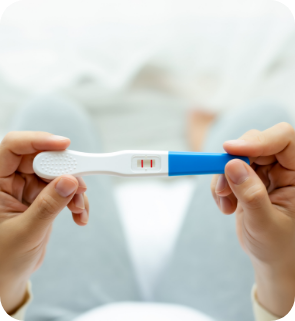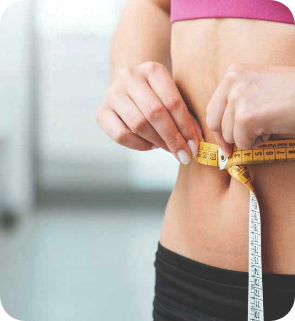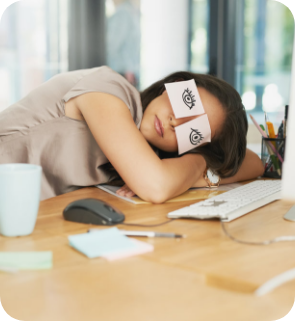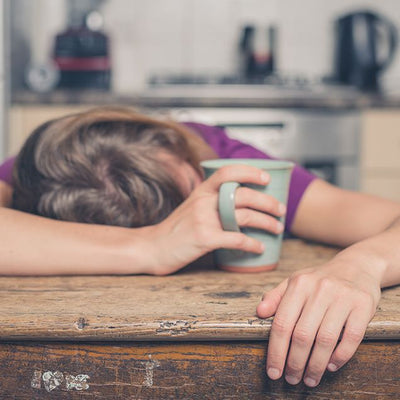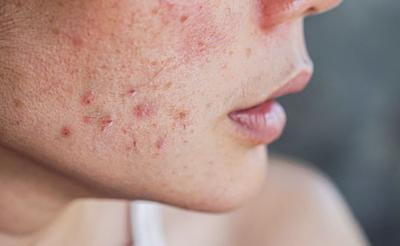
What is PCOS?
PCOS Is A Condition That Affects 100's of Millions That Nobody Knows Anything About.
What is PCOS?
Polycystic ovary syndrome (PCOS) is a female-specific condition that is far more common than most believe. Even to this day, when I tell people that I work with women with PCOS I would say that 80% of people, men and women, have never heard of it. This is hard to believe when you know that between 10% - 15% of the entire female population has PCOS. This means there are around 300 - 500 million women in this world with PCOS.
Because PCOS stands for polycystic ovary syndrome it is extremely misleading due to the fact that polycystic ovaries can be a symptom of PCOS, not the cause of PCOS. Speaking of the cause, we still don’t completely understand it, but we do believe there is most likely a genetic disposition combined with lifestyle and environmental factors.
Some Key PCOS Facts:
- PCOS is the most common hormonal disorder in women
- It’s the leading cause of female infertility
- It affects a woman physically, emotionally, and mentally
- There’s currently no cure for PCOS
- Most doctors are clueless about it
It is not just an ovary condition, despite the same suggesting otherwise. In fact, there are a number of signs and symptoms that PCOS can create.
Common PCOS Symptoms Include:
- Menstrual cycle irregularities
- Fertility troubles
- Weight gain
- Acne
- Male-like hair growth or hirsutism (face, chest, belly, back)
- Male-like hair loss, on the scalp of the head
- Sleep issues
- Poor energy levels
- Mood disorders such as depression and anxiety
At the core, PCOS is a metabolic and inflammatory condition but, what the heck does that mean? It means the underlying issues are found in your metabolism, and immune system. Studies have shown us that PCOS creates an inflammatory state within the body, usually found in tests showing high C-reactive protein (CRP) levels.
Studies also show that up to 70% of women with PCOS will have insulin resistance, a condition where the cells of your body stop reacting to the hormone insulin as they should. Insulin resistance is the first step to type II diabetes, hence why women with PCOS are up to 8 times more likely to develop it.
Insulin resistance is the leading cause of weight gain in women with PCOS. No, they aren’t being lazy or cheating on their diet. PCOS literally creates an internal environment so geared towards weight gain that it’s completely unfair to say stupid crap like that.
Insulin resistance is responsible for PCOS symptoms such as: weight gain, androgen excess, poor energy levels, sleep issues, increased hunger, and cravings.
Another hallmark of PCOS is androgen excess. Androgens are a group of male sex hormones that, in females, are produced primarily by the ovaries but, also the adrenal gland and fat tissue (body fat).
Excess ovarian androgen production is triggered by insulin resistance while excess adrenal androgen production is being caused by chronically elevated levels of cortisol, your stress hormone.
Androgen excess is responsible for PCOS symptoms such as: acne, menstrual cycle irregularities, hair loss, and hair gain.
An aspect of PCOS that is less talked about but just as important is the emotional toll that having PCOS can take on a woman. She never asked for this, she doesn’t want to deal with this, there’s no cure for this, and on top of that she has to deal with family, friends, and medical experts either not having a clue about it or showing no empathy towards it.
In 2020, PCOS is honestly where mental health was in the 90’s when if you had depression like symptoms you were told to get on it with, just smile, or told that you’re a sook for complaining about it.
Spend any time actually listening to what some women with PCOS are going through and if you don’t have an extremely high amount of empathy and care for her than you’re an absolute wanker. I can’t imagine what it must be like having a condition that can affect you so deeply, so personally and to have people who just palm it off like it’s nothing.
One thing that does cause confusion, especially for medical experts who are honestly in the stone age about PCOS is the individual nature of it. PCOS will differ from woman to woman. You could take 100 women with PCOS and put them in a room to share their stories and you will get 100 different accounts on what having PCOS is like.
This is why I have such a hard time understanding the current PCOS treatment process by the medical field (don't get me started). A doctor simply putting a woman on metformin, or birth control, or duromine, telling her to ‘just lose weight’ and sending her on her way is freaking criminal.
- Medications like Metformin, hormonal birth control, or spironolactone may help a woman’s symptoms while she takes the medication but, it’s just a band-aid and, these medication can come with some serious side effects.
- There is no medication that can help PCOS anywhere near as effectively as lifestyle modification, like diet, exercise, and supplementation.
- Weight loss may or may not help PCOS symptoms. It depends on if excess weight is triggering her PCOS symptoms, this most definitely is not always the case
- A woman with PCOS expressing her experience is not “making it all up for attention”
Currently the best line of attack to take control of PCOS is through lifestyle modification. This means focusing on following a healthy diet, getting in regular exercising, reducing stress levels as much as possible, getting quality sleep (easier said than done, I know), and taking the right supplements.
Over the last 5 years, PCOS is a condition that I have become incredibly passionate about, a fact a lot of women find confusing seen as I’m a male. There are so many women with PCOS in the world that have so many questions that simply want answers to, that’s where I see my role, Breaking down the complex science of PCOS into understanding pieces of content.
PCOS isn’t something a woman is making up, she isn’t just looking for sympathy. She isn’t just being a sook. PCOS is real, and women with PCOS need real support..






